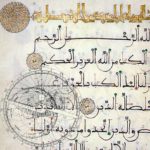
The change that the clerics want is merely to renew some partial dimensions of frozen jurisprudential rulings, that is, simply to choose some statements, opinions and fatwās in the heritage that are most appropriate to the present situation of Muslims, or those that they deem conducive to embellishing the image of religion in the eyes of others.
RENEWAL ACCORDING TO THIS perception is a renewal of the horizons of awareness, understanding and knowledge of the alleged ‘ancestors’ who lived a thousand years ago. It does not go far beyond these and is calibrated to what their explicit statements would allow, not according to what modern scientific research methodologies in the field of thought, humanities and social sciences lead to, and which could reformulate the system of the clerics’ jurisprudential conceptions, in line with secularism and modernity.
In other words, they only conceive the possibility of renewing the heritage by means of the heritage itself, as the Shaykh of Al-Azhar explicitly put it: “Heritage invites us towards renewal; the words of renewal are already present in the heritage.” It is clear here that the Shaykh of Al-Azhar, who is the current representative of the consciousness of Sunni Islam (and implicitly, also of Shī‘a Islam by virtue of the similarity and congruence of their mental structures), envisions a highly selective renewal of heritage, not a comprehensive, irreversible modernising renewal.
The heritage is perforce considered an absolute constant of the faith, even though the heritage is no more than a set of relative ideas deriving from a specific time and environment
The Shaykh of Al-Azhar insists on denying the legitimacy of any criticism of the heritage, stresses that the problem is not in the heritage itself and invites us to search for the causes of our problems outside of it. He talks about the backwardness of Muslims who have become, as he said literally: “unable to manufacture a car tyre, let alone a car itself, nor manufacture the weapons we are forced to buy from others”. This verbal link between stripping the heritage of any responsibility for the backwardness of Muslims and their lack of industrial development reveals the nature of the shaykhs’ perception of what development and progress are. This is no different from the traditional vision of the general Muslim public who deliberately separate two worlds that are in fact impossible to separate: the world of conscious thought and the world of industrial technology.
The situation is different in the case of the Christian heritage, since this has been renewed repeatedly since the dark days of the Middle Ages. Christianity is spiritual in essence and has nothing to do with politics and the life affairs of members of Christian communities. If it is touched at all by politics, this occurs when people fail to read the language of the era and development over the ages. Whereas it is difficult – and we may not be exaggerating if we say impossible – for this to come to fruition from within the various Islamic religious institutions. This is especially so since the Islamic heritage faces a serious impediment: since the heritage is perforce considered an absolute constant of the faith, even though the heritage is no more than a set of relative ideas deriving from a specific time and environment and from people’s lives about which we know nothing real and which are entirely undocumented.
When the Shaykh of Al-Azhar defends the heritage he is only in fact defending himself and those of his ilk
On the other hand, we find the clerics, who are driven by these alleged ‘constants’, embroiling this heritage – with all its contradictions and calamities – in all areas of life without exception, with the slogans: “Ask the followers of the Reminder”[1] and deliberately ignoring that non-religious affairs in life have other specialists who must apply their expertise in mundane matters. Clerics object, for example, to the transplantation of human organs to save patients from death, and they also object to the treatment of a patient with kidney failure because this opposes God’s judgment. The also preventing the publication of any work of art whose subject is the Āl al-Bayt (‘the immediate family of the Prophet), or ‘those granted glad tidings of Paradise’[2] or the Companions.
Their objections even reached the point that powdered formula milk was not to be administered to babies. We have a shaykh who discovered a prayer for preventing the arrival of the Corona virus from China to Egypt, and there is also another who issued a fatwā that permitted a woman to wear sandals without socks. Another allows a child to marry his mother on condition that ‘he places on his urethra a piece of cloth’, that is, he covers his penis! And another ‘permits’ a fiancé to see his fiancée as naked as her mother bore her! This is not to mention the fatwās on breastfeeding an adult and eating the flesh of one’s wife or copulating with her following her death …… We thus find these so-called ‘people of the Reminder’ – whom we must consult – have left nothing out in our lives without having a thousand opinions and a million ‘reminders’ concerning them.
This genuine renewal can only be carried out on the ruins of the ancient heritage
Over the history of modern Islamic thought Islamists have emphasized that Western civilization has two aspects: a spiritual aspect and an industrial aspect, and that all they need from the West is the industrial aspect. They see that they can achieve the highest level of progress and development by preserving the role of the traditional heritage/religious consciousness to govern public awareness. So they remain rooted in their position of backwardness since true progress cannot be achieved without a qualitative change in the overall system of perceptions in the movement of public consciousness. That is, without bringing about a qualitative development in the system of consciousness, one that embraces the entire heritage and its deeply rooted content, to dismantle the system of public consciousness of all Islamists and of Arabs in particular.
When the Shaykh of Al-Azhar defends the heritage in its traditional formation, and considers criticism of it to be an attack on Islam, he is only in fact defending himself and those of his ilk. For to criticise the heritage and dismantle it from within by means of the latest methodologies of modern humanities and social sciences, will prejudice the interests of religious institutions, foremost among which is Al-Azhar, and damage the interests of its representatives and beneficiaries completely or partially.

Suggested Reading
The matter is even more dangerous for the Al-Azharīs and its general beneficiaries, in that a radical criticism and a scholarly dismantling cannot be carried out by themselves since they do not have the tools to do so in the first place. They therefore will not be able to have a say in this context of qualitative renewal, a renewal that takes its first steps with a criticism of the heritage in all its aspects and at all levels. In short, this genuine renewal can only be carried out on the ruins of the ancient heritage and thus only upon the ruined interests of its proponents. The clergy are well aware that this rotten heritage cannot be renewed without applying of a demolishing pickaxe to its steely structure, and without dismantling its complex grip on the consciousness of Muslims.
[1] Qur’ān XVI (al-Naḥl), 43-44: And We did not send before you any but men to whom We sent revelation– so ask the followers of the Reminder if you do not know with clear arguments and scriptures; and We have revealed to you the Reminder that you may make clear to men what has been revealed to them, and that haply they may reflect.
[2] Al-‘ashara al-mubashsharūn bil-Janna: ten early Muslims to whom, according to Sunni tradition, the Prophet Muḥammad promised paradise. The tradition may be pro-Qurayshi or pro-Umayyad in origin but was adopted by 9th-century Sunni hadith collectors as part of the then developing Sunni tradition, in which reverence for the Companions of the Prophet held a special place.
See Part One of this essay here
